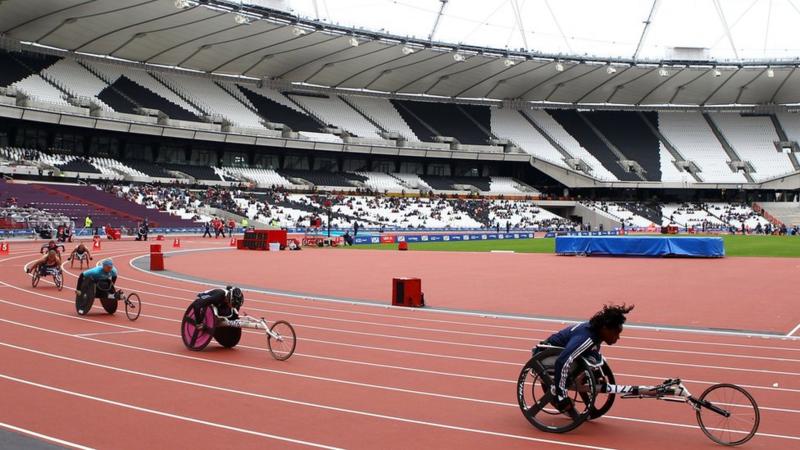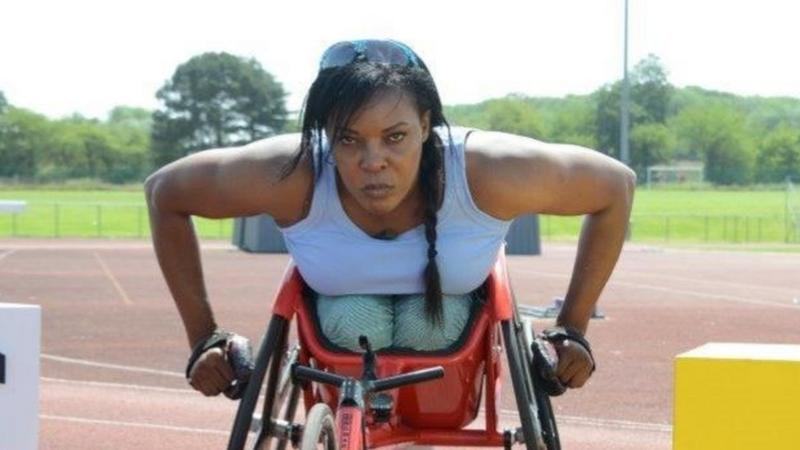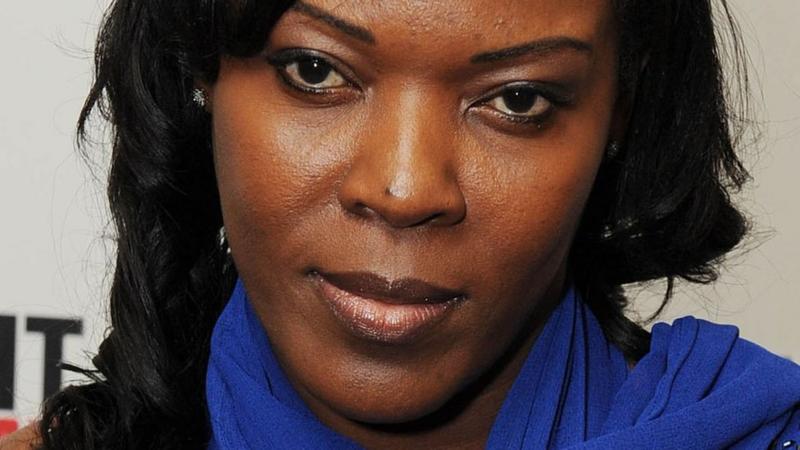Anne Wafula-Strike was the first wheelchair racer from Sub-Saharan Africa to compete at the Paralympics, when she represented Kenya at the 2004 Games in Athens – and has now become a symbol of change, in British society and beyond, as a campaigner for inclusion and diversity. This is her story.
Anne Wafula-Strike is now a board member for Active Essex, the British Paralympic Association and UK Athletics – the only black person serving at that capacity across all the 12 British government-funded sports board.
Her push for change has recently been a factor behind the UK sports minister Nigel Huddlestone initiating a review of the Sports Governance Code, so that boards will be obliged to include members from black and minority ethnic groups.
She has also been recognised by the Queen, awarded Member of the British Empire (MBE) for her services to disability sport, and serving as patron of several charities supporting the rights of people with disability.
“We do this not for our personal benefits, but because inclusion and diversity benefit all of us,” she says.
It is the payoff from a career that began in 2001 when Wafula-Strike first took up wheelchair racing, though she had sustained her disability at the age of two, when she contracted polio, resulting in paralysis of her legs.
Initially, she did not see her career direction being in sport, instead pursuing education to university level before becoming a teacher at a college in Eastern Kenya.
There, she met her British husband Norman.
But she credits her approach to life to her father, who trained her on how to approach challenges differently.
“My father told me from early on that in life’s opportunities while others will be considered at 75 percent, I will need to put in 110 percent to be given a chance because of disability,” she says.
“He also told me this is a man’s world. And as a military officer, he knew – too well – that as a woman, I needed to work twice as hard.”
‘Outstanding contribution’

She grew-up relatively unaware of how big an issue her race could be, as her father rarely mentioned it as he never thought she would one day leave Kenya and be in a world where she would be a minority because of her skin colour.
Wafula-Strike only got into sport after moving to the UK in 2000 with her husband Norman.
And 2004 marked the beginning of an Olympic career when she became the first wheelchair racer from Sub-Saharan Africa to compete at the Paralympics in Athens, representing Kenya.
After she acquired British Citizenship in 2006, she went on to represent Britain in two World Championships and four Paralympian World Cups.
In 2015 she was appointed a board member of UK Athletics on recommendation by the then chair Ed Warner, following her outstanding contribution to disability sport.
Had major sporting events of the year 2020 not been cancelled or deferred due to the Covid-19 pandemic, the Paralympic Games would be underway in Tokyo, and Ann would have been there as a UK Athletics official.
“It would have been a time of celebrating our heroes at the games and for me personally it would also have been a time to highlight some of the challenges many Paralympians, especially those from Africa, encounter before the start of each edition of the games,” she says.
“It hurts me when I look at delegations that are not representative of those who are taking part in the Games, and hearing harrowing tales of Paralympians experiences when traveling.
“They don’t have huge sponsorship and have minimum training before the games.”
Wafula-Strike has made it her mission in life to campaign for inclusion and diversity having experienced discrimination first hand as someone living with disability, as a woman and as a black person.
“I have lived through the indignity and stigma that people with disability face every day of our lives,” she adds.
“I have seen pain in the eyes of young girls, whose ambitions have been taken away just because they are girls; I have experienced the struggle that black people face in order to be recognised as equal even in 2020,”
Historic settlement

The Paralympian’s campaign for inclusion and diversity had an immediate impact during the 2016 Games in Rio, a year after she had been appointed member of UK Athletics Board.
It was at that time that she added her voice to the global outrage following the admission by the local organising committee in Rio that the Paralympics had to be scaled down because money had been overspent in the main Olympics, three weeks before.
That meant athletes from more than 50 poor nations faced missing the Games because money intended for them as travel grants had been spent elsewhere.
Following that outcry there were interventions from the government and the mayor which enabled the games to go ahead as planned.
“It starts with discrimination and prejudice,” she says
“When discrimination is there, the allocation of funds is different and somebody gets priority over others. To me, as a disabled woman, that is what is happening to people with disabilities all over the world. We don’t get priority and that’s why we are still fighting.”
In Britain, Wafula-Strike is also famously known for having spoken out forcing the whole rail industry to undertake a thorough review of its processes, new accessibility training and enhanced maintenance of train toilets following an incident in which she wet herself on a train when the disabled toilet was not working.
Although she was compensated at the time for the experience, the Paralympian said “I can’t describe the settlement as victory.
“It will be a true victory when what happened to me no longer happens to any disabled traveller anymore.”














